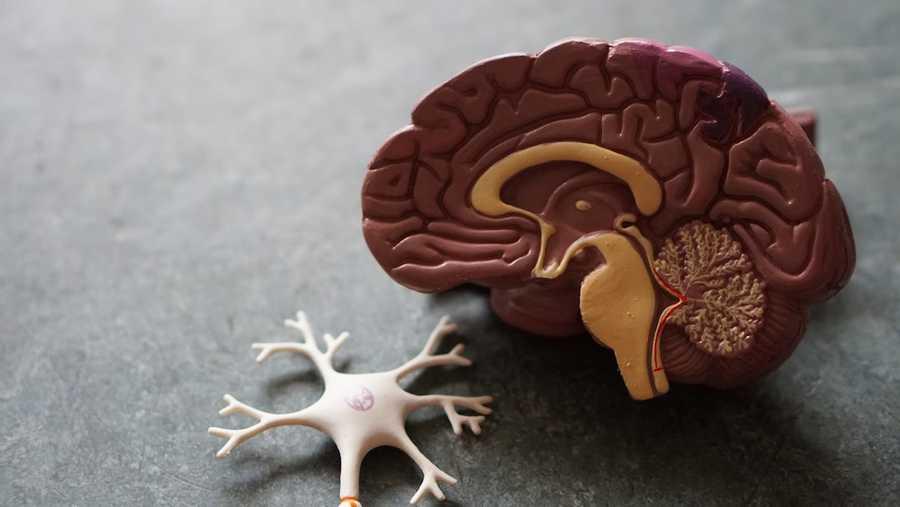How Sleep At Night Is Really Important?
Curated from: healthline.com
Ideas, facts & insights covering these topics:
11 ideas
·11.9K reads
91
1
Explore the World's Best Ideas
Join today and uncover 100+ curated journeys from 50+ topics. Unlock access to our mobile app with extensive features.
Taking A Nap: Sleep Debt
When we constantly get less sleep (even 1 hour less) than we need each night, it is called sleep debt. We may pay for it in daytime drowsiness, trouble concentrating, moodiness, lower productivity and increased risk of falls and accidents.
Although a daytime nap cannot replace a good night’s sleep, it can help make up for some of the harm done as a result of sleep debt.
- But avoid taking a nap after 3 pm as late naps may stop us getting to sleep at night.
- And avoid napping for longer than 30 minutes as longer naps will make it harder to wake up and get back into the swing of things.
174
1.47K reads
Sleep Deprivation
In a nutshell, sleep deprivation is caused by consistent lack of sleep or reduced quality of sleep. Getting less than 7 hours of sleep on a regular basis can eventually lead to health consequences that affect our entire body.
Some of the side effects of sleep deprivation include:
- memory troubles
- mood changes
- weakened immunity
- trouble concentrating
- poor response time and increased risk of accidents
- high blood pressure
- weight gain
- risk for diabetes
- low sex drive
- risk of heart disease
- poor balance
- early aging
170
1.01K reads
Sleep Cycle
Sleep is not uniform. Instead, over the course of the night, our total sleep is made up of several rounds of the sleep cycle, which is composed of four individual stages.
In a typical night, a person goes through four to six sleep cycles. Not all sleep cycles are the same length, but on average they last about 90 minutes each.
158
1.54K reads
Composition Of Sleep Cycles
It is normal for sleep cycles to change as we progress through our nightly sleep. The first sleep cycle is often the shortest, ranging from 70-100 minutes, while later cycles tend to fall between 90 and 120 minutes. In addition, the composition of each cycle — how much time is spent in each sleep stage — changes as the night goes along.
Sleep cycles can vary from person to person and from night to night based on a wide range of factors such as age, recent sleep patterns, and alcohol consumption.
150
1.14K reads
Misconception About Sleep
One earlier misconception that has now been revised is that the body completely slows down during sleep; it is now dear that the body’s major organs and regulatory systems continue to work actively – the lungs, heart and stomach for example.
Another important part of the body also operates at night – the glands and lymph nodes, which strengthen the immune system. This is commonly why the body’s natural immunity is weakened with insufficient sleep.
Also in the brain, activity of the pathways needed for learning and memory is increased.
159
1.05K reads
Another Myth
Our body requires less sleep the older we get.
Whilst, it is true that babies need 16 hours compared to 9 hours and 8 hours respectively for teenagers and adults, this does not mean that older people need less sleep.
However, what is true if that for a number of different factors, they often get less sleep or find their sleep less refreshing.
155
985 reads
Why?
This is because as people age, they spend less time in the deep, restful stages of sleep and are more easily awakened. Older people are also more likely to have medical conditions that affect their sleep, such as insomnia, sleep apnoea and heart problems.
151
1.14K reads
Sleep Patern: NREM & NREM
1. Non-REM sleep (sometimes called NREM), which includes light and deep sleep, accounts for about the majority of our sleeping time.
2. REM (Rapid Eye Movement) sleep is where we may spend some of our time dreaming. This typically takes place during the last half of our night’s sleep.
While we’re snoozing, we usually go through 4-5 sleep cycles that begin in light NREM sleep and end in REM sleep with each cycle taking between 70 and 120 minutes to complete.
153
948 reads
NREM: Sleep Stages One
1. Light Sleep
- Stage 1 non-REM sleep – a person in this stage is between being awake and asleep or is in a state of very light sleep.
- Stage 2 non-REM sleep – this stage is characterized by a slightly deeper sleep. Body temperature drops and heart rate slows down.
151
753 reads
NREM: Sleep Stages Two
2. Deep Sleep
- Stages 3 non-REM sleep – a state of deep and restorative sleep known as slow-wave sleep, or delta sleep. The muscles relax, the supply of blood to the muscles increases, and the body repairs and grows tissue. Hormones are released and energy stores are replenished.
151
813 reads
REM: Fast Facts
- During REM sleep, our brain is almost as active as it is when we are awake.
- In this phase of sleep, breathing can become fast and irregular.
- REM sleep is thought to help consolidate memories.
- Drinking alcohol before bed reduces the amount of REM sleep we have.
- People with REM sleep behavior disorder act out their dreams.
153
1.1K reads
IDEAS CURATED BY
Nico D'Angelo's ideas are part of this journey:
Learn more about productivity with this collection
How to break bad habits
How habits are formed
The importance of consistency
Related collections
Similar ideas
12 ideas
A Brief Guide on How to Sleep Better Every Night
jamesclear.com
3 ideas
9 ideas
How to Sleep Better
helpguide.org
Read & Learn
20x Faster
without
deepstash
with
deepstash
with
deepstash
Personalized microlearning
—
100+ Learning Journeys
—
Access to 200,000+ ideas
—
Access to the mobile app
—
Unlimited idea saving
—
—
Unlimited history
—
—
Unlimited listening to ideas
—
—
Downloading & offline access
—
—
Supercharge your mind with one idea per day
Enter your email and spend 1 minute every day to learn something new.
I agree to receive email updates











